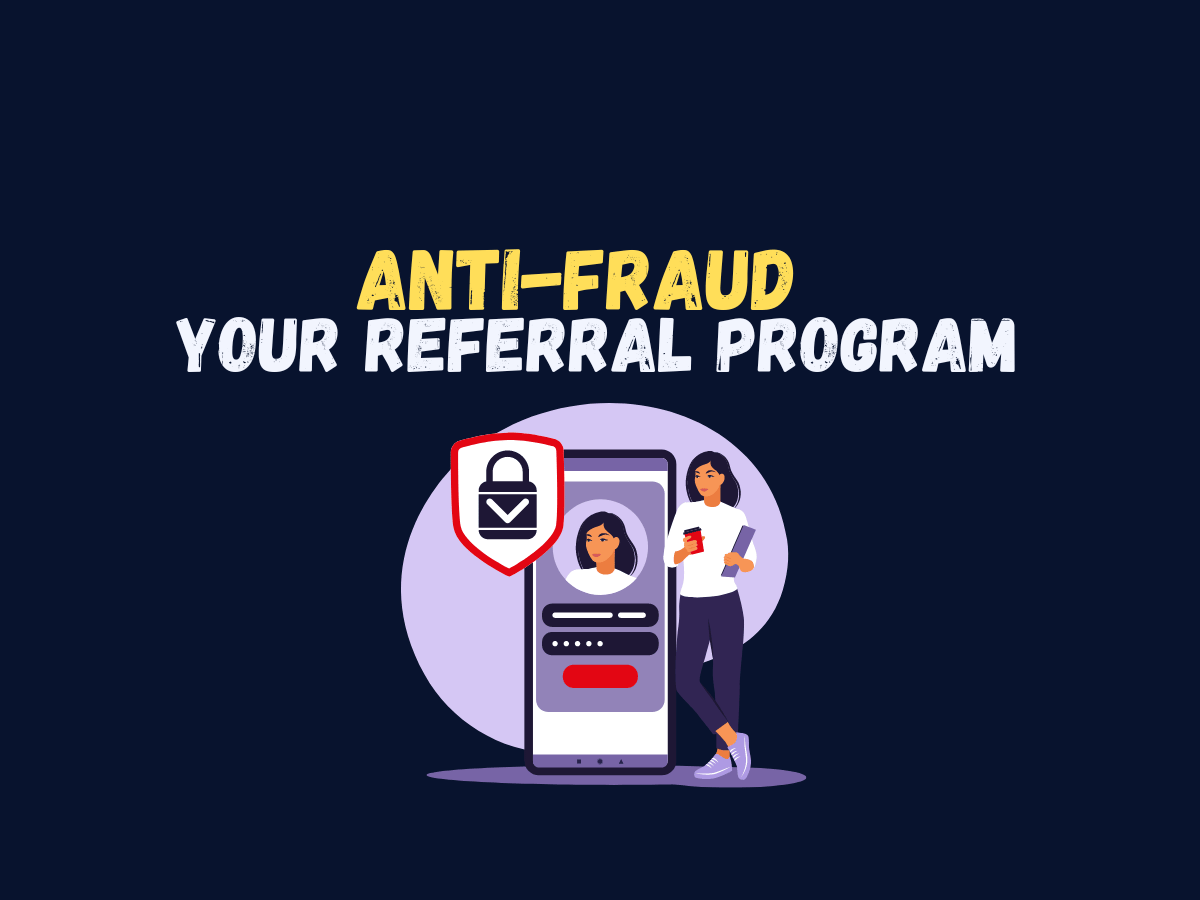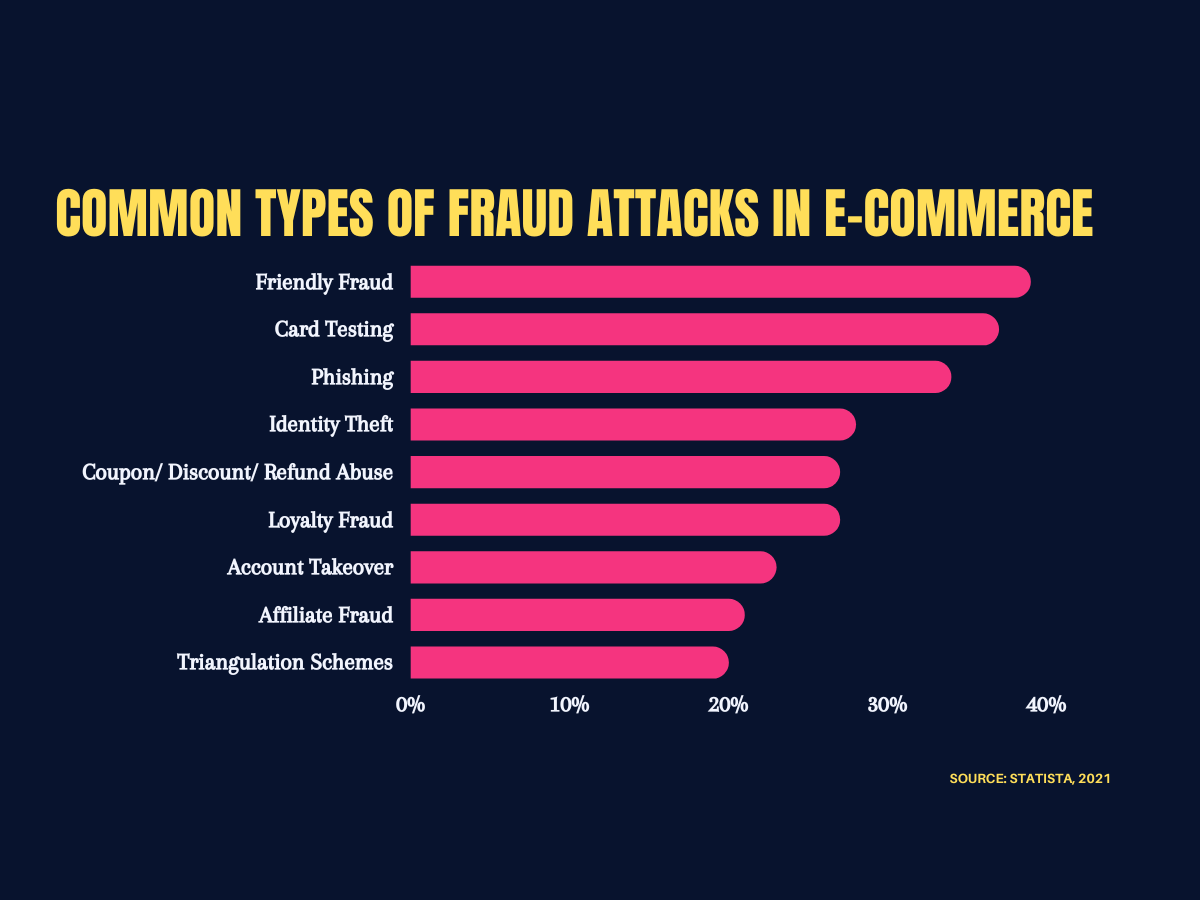
8 Tips to anti-fraud your referral program
Fear having fake sign-ups in your referral program? Then you must read these tips to protect your referral program from being played with!
What's worse?
Having no referral program at all
or
Having an attractive referral program with the right metrics in place but no conversions.
We agree, it's the latter.
You see, having a solid referral program is one of the most effective ways to grow your customer-base + build brand advocacy in a cost-effective way. However, due to nature of the program and the attractive discounts/ rewards that a business offers as a part of it- the chances of some customers playing with the program are also much higher.
In this article, we help you detect and fight some common referral frauds, so you can securely run your referral campaign.
A Statista survey suggested that referral program was responsible for 21% of all fraud attacks on e-commerce sites in 2021.

Why does fraud in a referral program mean bad news?
- Misleading data: If your referral program has any suspicious play, it will be close to impossible for you to differentiate between fraudulent and legitimate referrals. Fraudulent referrals can dilute the data of genuine referrals, making it difficult to accurately track ROI, conversions etc. 'Fairness' in terms of processing rewards is also questionable in such cases.
- Burn for negative return: You'll probably ending up spending on referrals that actually don't add any value to your business. Not even short-term.
- Risk losing honest customers: Fraudulent referrals can undermine the credibility of a referral program and damage customer trust.
The common referral program frauds that most businesses fall prey to:
- Self Referral: An individual referring themselves to get rewarded.
- Fake Referrals: Illegitimate or fake names, e-mail ids etc., submitted.
- Repeat referral redemption: When an individual registers themselves to the referral program more than one time/ re-uses the same code (highly possible unless you have set a redemption limit per customer)
- Scripted referrals: There could be participants or individuals who refer your brand to someone they know, only to get rewarded. In other words, they know that the person referred to is going to be inactive for the business in future.
- Public Referrals: Instead of only sharing your referral codes within their personal circle, some customers could share it in a public forum to a random audience and enjoy rewards in BULK! Chances are they might not even be your TG :(
Having fraud in your referral program is like leading yourself on.. with a strong misperception of the actual performance of your business.
Run a referral program that is defensive from get-go!
Fortunately, we have gathered ways that you might want to consider to combat referral program fraud right from inception to execution!
#1 Verify every customer
By requiring participants to provide verifiable information about them such as a valid email address, phone number etc., you can prevent possible fraudulent sign-ups. This helps to ensure that only legitimate participants are able to take advantage of the referral program, reducing the risk of fake referrals and self-referrals. Additionally, using a two-factor authentication process, such as email or SMS verification, can add an extra layer of security to the customer verification process.
#2 Unique Referral Codes
By assigning a unique referral code to each participant, you can track and monitor the referral activity of each individual. Unique referral codes can also prevent participants from sharing codes with others because each code will be tied to their unique account and cannot be used multiple times.
#3 Rules of your referral program can change everything!
Frame the rules in favour of customers making a purchase/ transaction first (before they get rewarded). + you should consider setting a minimum amount in this case. But be careful, while setting a minimum amount, your customers might not find the reward as aspirational (probably because they feel they are spending way more than they are getting). Your minimum amount should be relative to the reward and in accordance to how interesting it is for the customers.
#4 Cash rewards are extremely attractive...probably why they are also equally risky!
Cash rewards can be a powerful motivator for customers to participate in a referral program. The allure of cash can lead some participants to engage in fraudulent behavior, such as fake referrals, self-referrals, or incentivized referrals, just to receive the cash reward.
We suggest, try and think of other non-cash incentives that your customers might like. For example, free experiences, subscriptions, or even discounts, points etc.
#5 Limit the number of redemptions
By limiting the number of rewards a single participant can receive, businesses can prevent individuals from gaming the system and exploiting the process.
For example, if a business sets a limit of two referral rewards per participant, it will prevent individuals from making multiple fake referrals or self-referrals to collect more rewards.
Additionally, setting a limit can also encourage participants to refer friends and family members who are genuinely interested in the product or service, rather than simply making multiple referrals for the reward. This can help to drive real customer acquisition and build a stronger referral network.
#6 You could be patient before processing rewards
Yes, in an ideal scenario, we'd say "be quick", "don't make customers wait for something they have earned"..but then this is not about your genuine customers. The point we are making here is to combat the scammers who might be fulfilling the rule of making a purchase with you (refer #3) but might just cancel their orders.. because you have already fulfilled their reward!
We'll be honest, this is a tricky one - so make sure ALL conditions of your referral program are mentioned to your customers in advance. You can't hold their reward because you had a change of heart - but a good way to handle this is to have a good enough timeframe defined between
when the referral program was launched — when the customers fulfilled all the rules— when the reward will be accessible for the customer.
Just repeating it so you do not forget: Inform your customers in advance of all these terms and conditions!
#7 IP Address tracking, for the win!
The most straight-forward of all!
This is what you do: Notice a strangely high referral rate from an IP address - mark it as suspicious and effectively make decisions to ban the user or not.
For example, if a business detects multiple referrals coming from the same IP address, it can indicate that the referrals are not genuine and were made by the same person. This can help the business to identify and prevent fraud even before it occurs.
Additionally, IP address tracking can also be used to detect incentivised referrals, where participants are paid or rewarded for making referrals. By tracking the IP address of each participant, businesses can identify instances where multiple referrals are coming from the same IP address, indicating that the participants are not genuine referrals.
#8 Consider running a campaign through a referral marketing software.
Did you know there are tools specifically designed to experiment, manage and track referral activity? By running your campaign with a referral marketing tool you can automate the entire process, including setting up fraud prevention measures, such as IP address tracking, unique referral codes, and limit on referral redemptions. In fact you can even monitor referral activity with real-time reporting and tracking capabilities.
